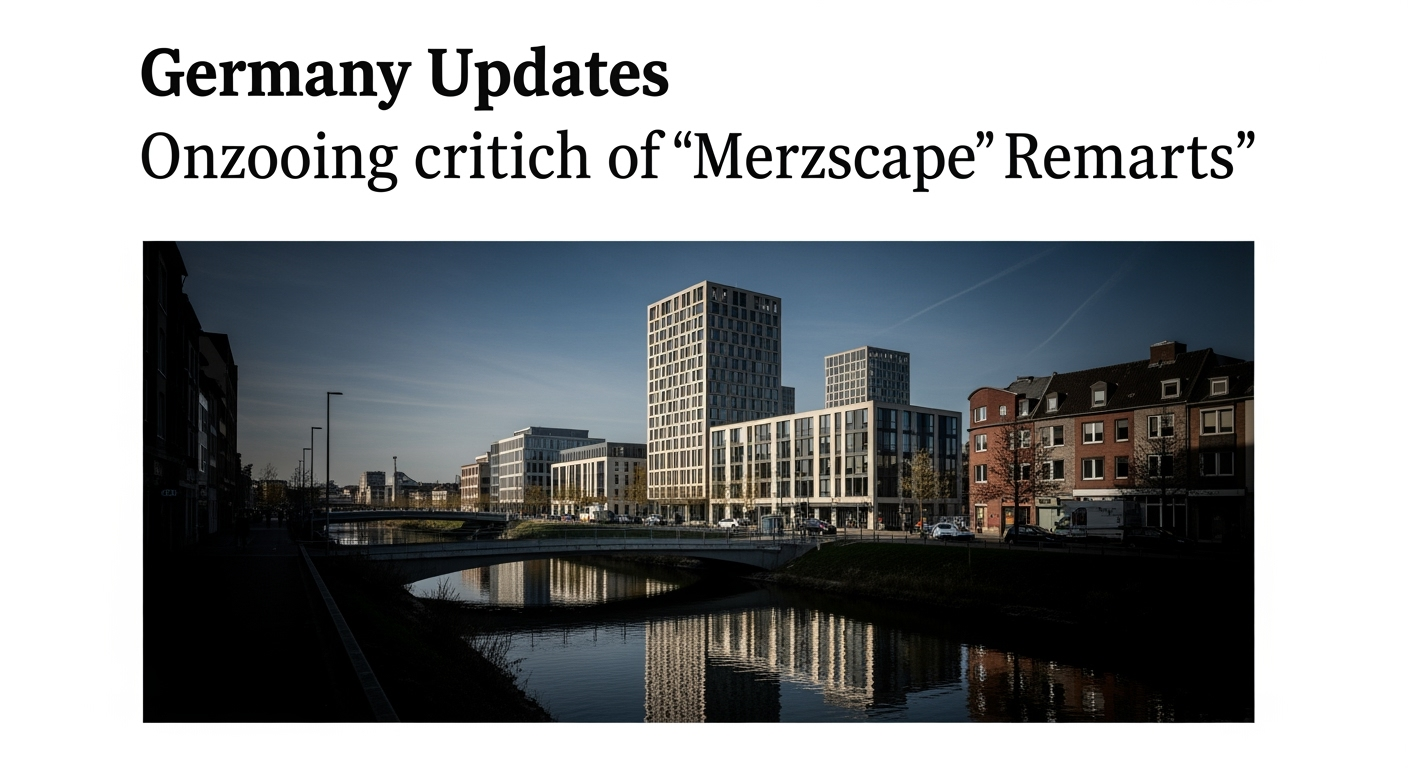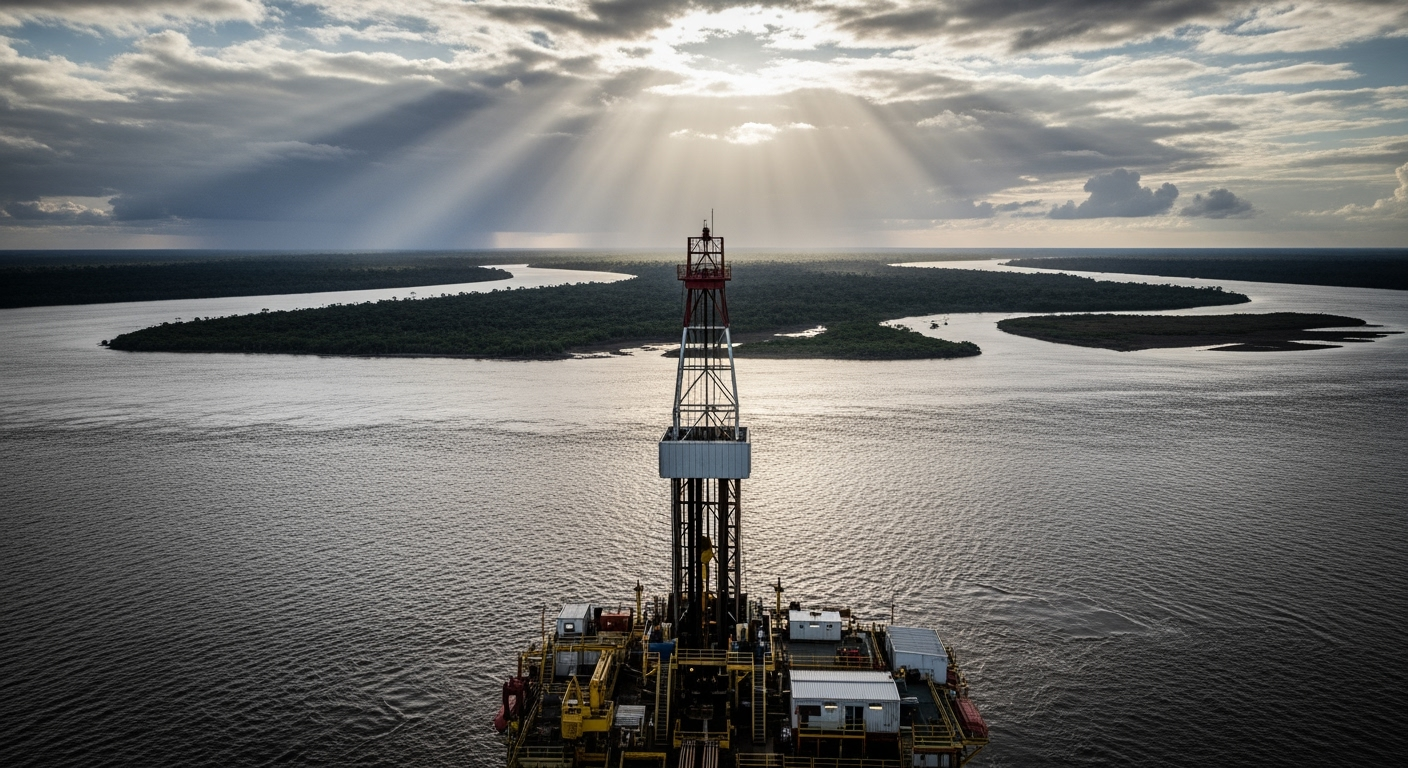Related Articles

Former French President Nicolas Sarkozy Begins Prison Sentence for Campaign Finance Conspiracy




RIO DE JANEIRO, Brazil – In a move poised to intensify the global debate over climate action and economic development, Brazil’s federal environmental agency, Ibama, has granted state-controlled oil giant Petrobras a license for exploratory oil drilling near the mouth of the Amazon River. The decision, announced on October 20, 2025, concludes a contentious five-year battle and immediately triggered strong condemnation from environmentalists, who argue it directly undermines Brazil's commitments as it prepares to host the pivotal UN climate talks (COP30) next month.
The approval allows Petrobras to proceed with drilling the Morpho wildcat well in Block FZA-M-59, located in the environmentally sensitive Foz do Amazonas basin. Drilling is slated to commence immediately and is expected to continue for approximately five months. This development highlights the complex tension between Brazil's aspirations for energy independence and economic growth, particularly in its northern regions, and its global responsibility to protect the Amazon rainforest and its delicate ecosystems.
The path to this approval has been fraught with regulatory hurdles and intense public scrutiny. Petrobras has aggressively pursued the exploration rights in the Foz do Amazonas basin, a region considered one of Brazil's most promising new offshore oil frontiers, for over a decade. The specific well, Morpho, is situated about 500 kilometers (310 miles) from the actual mouth of the Amazon River and roughly 175 kilometers (109 miles) off the coast of Amapá state, in deep waters. This distance has been a point of contention, with Petrobras emphasizing that the site is far from the river itself, while environmental groups counter that strong ocean currents could rapidly transport any spilled oil towards coastal areas and the Amazon's freshwater outflow.
The licensing process saw a significant setback in May 2023 when Ibama initially denied Petrobras' application, citing inadequate plans to protect wildlife in the event of an oil spill. However, following an appeal and a series of adjustments by Petrobras, including an on-site simulation of an oil spill accident, the agency ultimately reversed its stance. Ibama stated it granted the license after "a rigorous environmental licensing process" and that Petrobras "met all the requirements established." The state oil company has invested substantial resources over the years, including millions in preparation and maintaining a drill ship on standby, underlining its strategic commitment to the region.
Environmental organizations and scientists have voiced severe warnings regarding the potential ecological fallout of oil exploration in the Foz do Amazonas basin. The region is renowned for its exceptional biodiversity, including the Amazon Reef, a vast system of corals, sponges, and algae discovered in 2016, and serves as a habitat for endangered species such as manatees, dolphins, and various fish. Critics argue that an oil spill in this area would be catastrophic and nearly impossible to contain due to powerful ocean currents and the inherent complexity of the ecosystem.
Ibama's own technical staff had, in February 2025, recommended denying the environmental license, highlighting "profound uncertainties related to the project's Individual Emergency Plan" and the risk of "massive biodiversity loss in a highly sensitive marine ecosystem." Despite these internal warnings, the president of Ibama overruled this opinion in May 2025, paving the way for the recent approval. Furthermore, environmental groups like Brazil's Climate Observatory NGO contend that Indigenous and riverside communities, who depend on the marine environment, have not been adequately consulted, violating their rights. The movement of vessels and machinery, even without a spill, could disrupt critical marine life, including migration patterns of whales and turtles.
For the Brazilian government and Petrobras, the exploration of the Foz do Amazonas basin represents a critical opportunity for national development and energy security. President Luiz Inácio Lula da Silva has been a vocal proponent of exploring new oil frontiers, asserting that potential revenues could help fund Brazil's energy transition and social programs. Minister of Mines and Energy, Alexandre Silveira, has described the Equatorial Margin, where the basin is located, as "the future of our oil sovereignty," emphasizing that Brazil "cannot afford to neglect its potential."
Petrobras CEO Magda Chambriard hailed the license as an "achievement for Brazilian society," expressing hopes of proving the existence of commercially viable oil and gas reserves. The company underscores its role in ensuring Brazil's energy independence, arguing that production from new frontiers like the Equatorial Margin is essential to prevent Brazil from becoming an oil importer in the next decade. The region's geological similarities to neighboring Guyana, which has seen significant offshore oil discoveries and rapid development, further fuels the economic aspirations. Estimates suggest the Foz do Amazonas basin could hold as much as 10 billion barrels of oil equivalent, attracting considerable investment from international oil companies.
The timing of Ibama's decision has amplified the controversy, coming just weeks before Brazil hosts COP30 in Belém, an Amazonian city, from November 10-21. Critics, including environmental NGOs and civil society organizations, view the approval as a significant contradiction to President Lula's stated ambition of positioning Brazil as a global leader in climate action. "The government is sabotaging the leadership it should have at COP30," stated Suely Araujo, a former Ibama president and coordinator of the Climate Observatory NGO, questioning how Brazilian diplomats can advocate for a shift away from fossil fuels while the country expands exploration.
Public sentiment also appears to lean against the drilling. A Datafolha survey commissioned by corporate accountability group Eko revealed that 61% of Brazilians oppose oil extraction in the Foz do Amazonas basin. Environmental groups have vowed to challenge the decision in court, citing alleged "illegalities and technical flaws" in the licensing process. The controversy encapsulates a broader national debate about balancing economic development, particularly in resource-rich but ecologically sensitive areas, with urgent environmental protection and climate mitigation goals.
The decision to permit exploratory oil drilling near the mouth of the Amazon River underscores a pivotal moment for Brazil. It reflects the complex interplay of national economic interests, the pursuit of energy sovereignty, and the increasing global pressure to transition away from fossil fuels. While Petrobras and the Brazilian government champion the project as a strategic necessity for development and a "fair energy transition," environmentalists and a significant portion of the public warn of irreversible ecological damage and a compromised international climate standing.
As Brazil prepares to welcome world leaders to COP30, the spotlight will remain firmly fixed on how the nation navigates this profound dilemma. The outcome of this exploration — both in terms of potential oil reserves and its environmental implications — will not only shape Brazil's energy future but also carry significant weight for global conservation efforts and the credibility of its climate commitments on the world stage. The tension between exploiting vast natural resources and preserving one of the planet's most vital ecosystems is now more pronounced than ever.